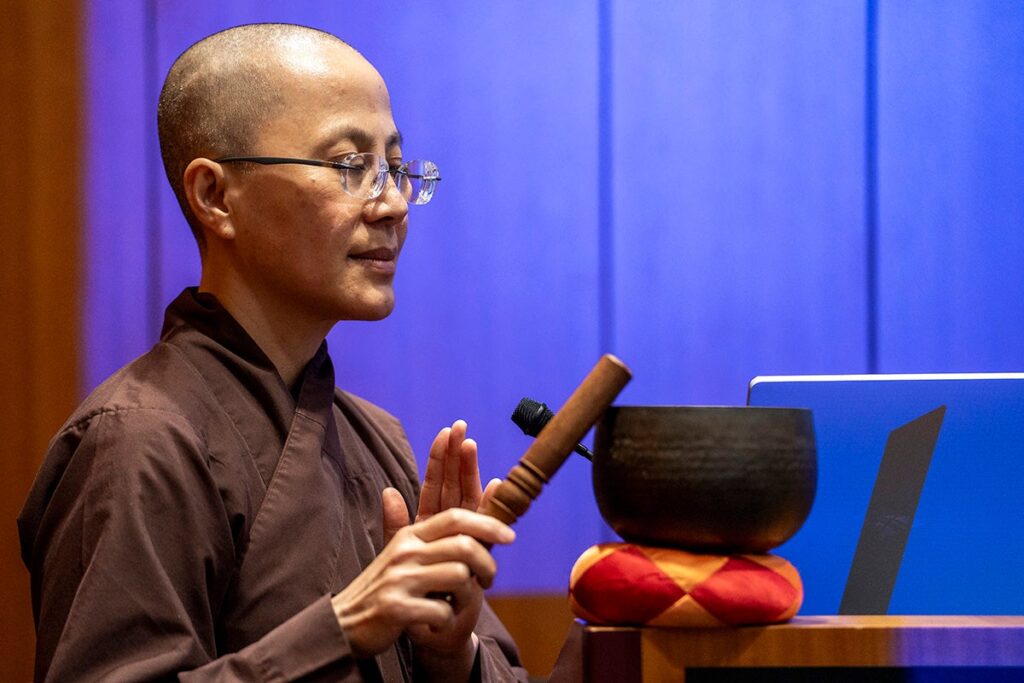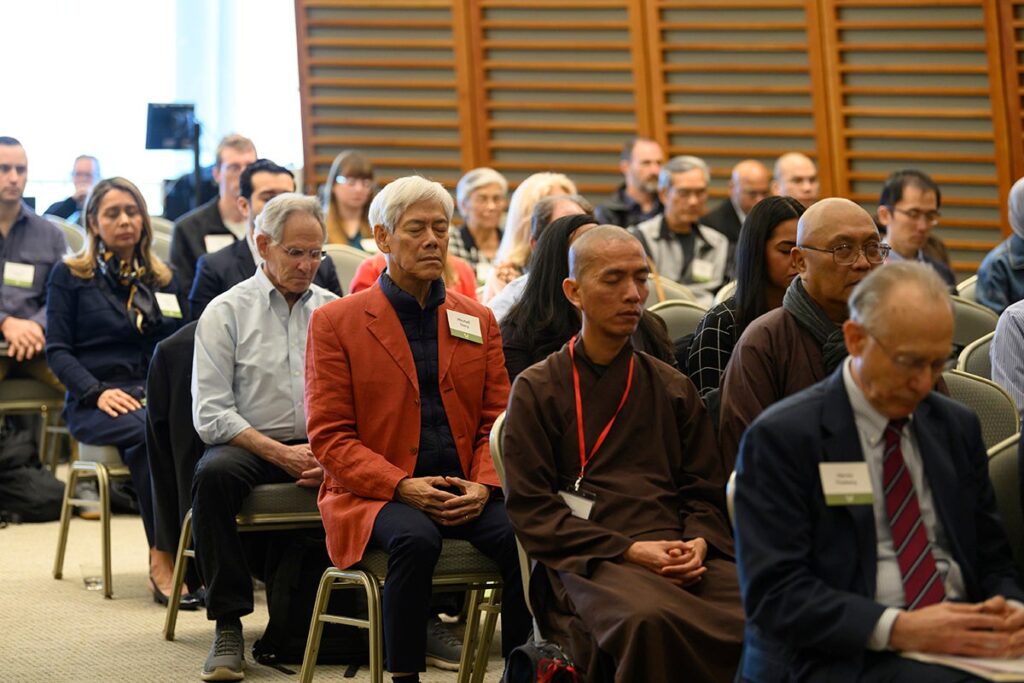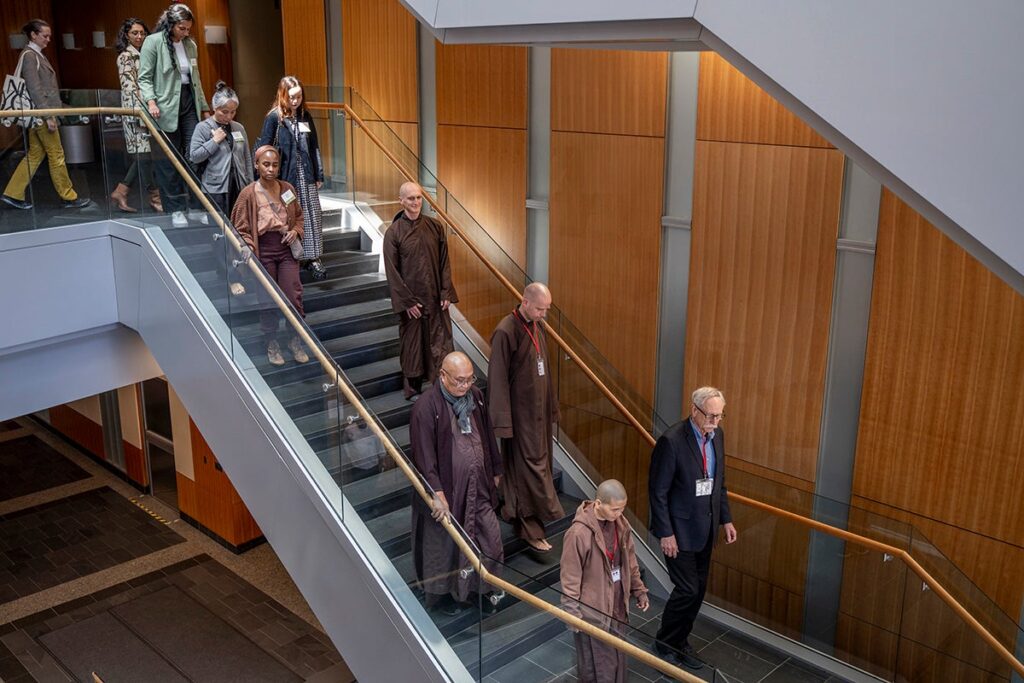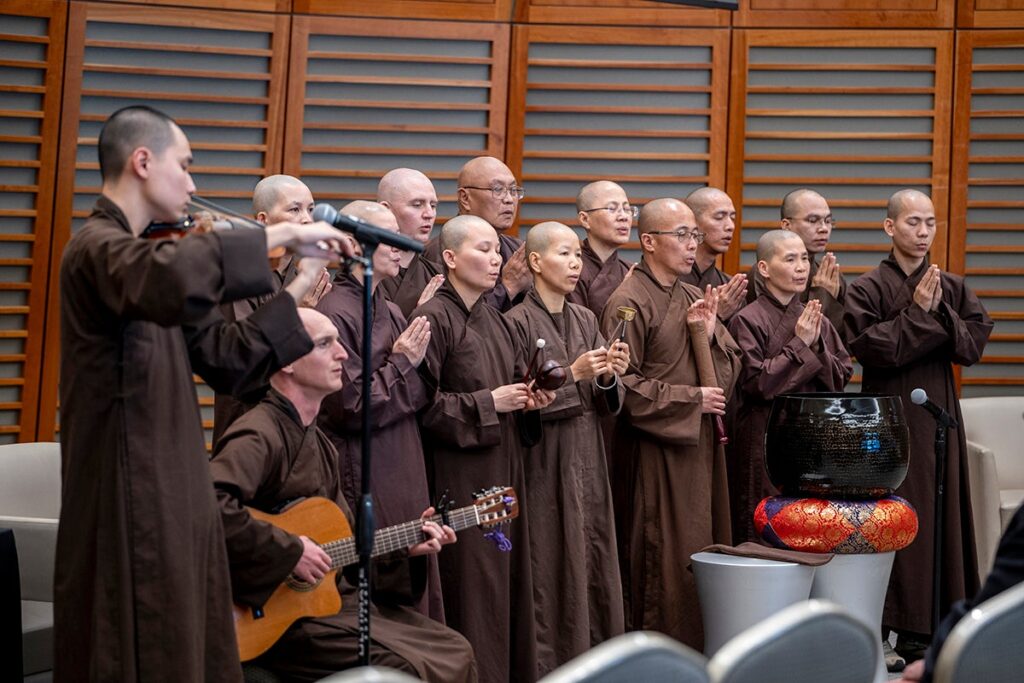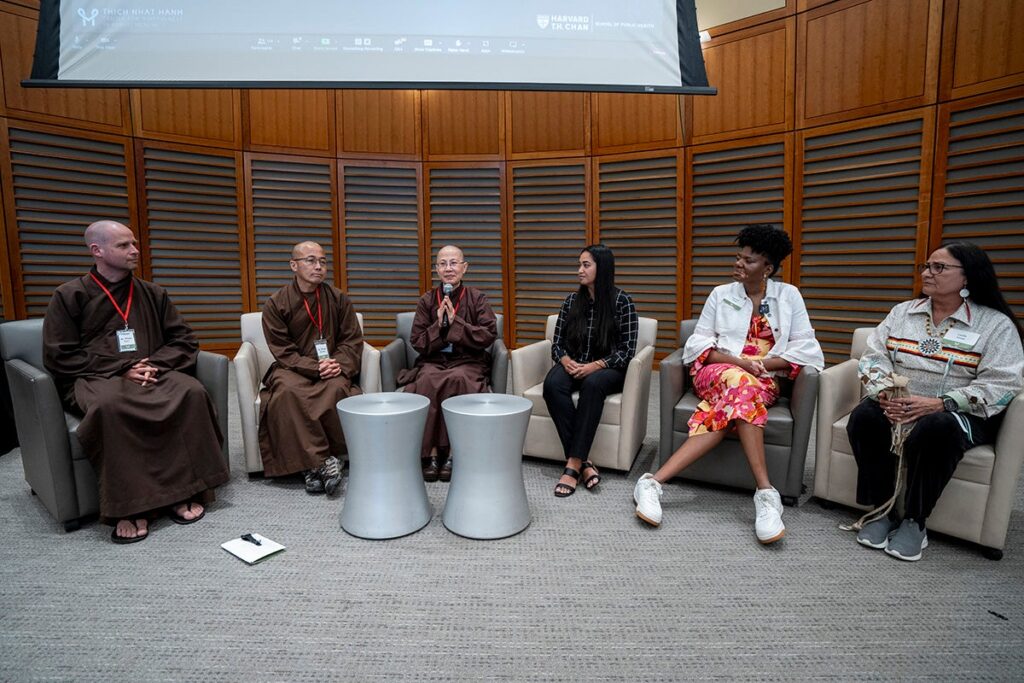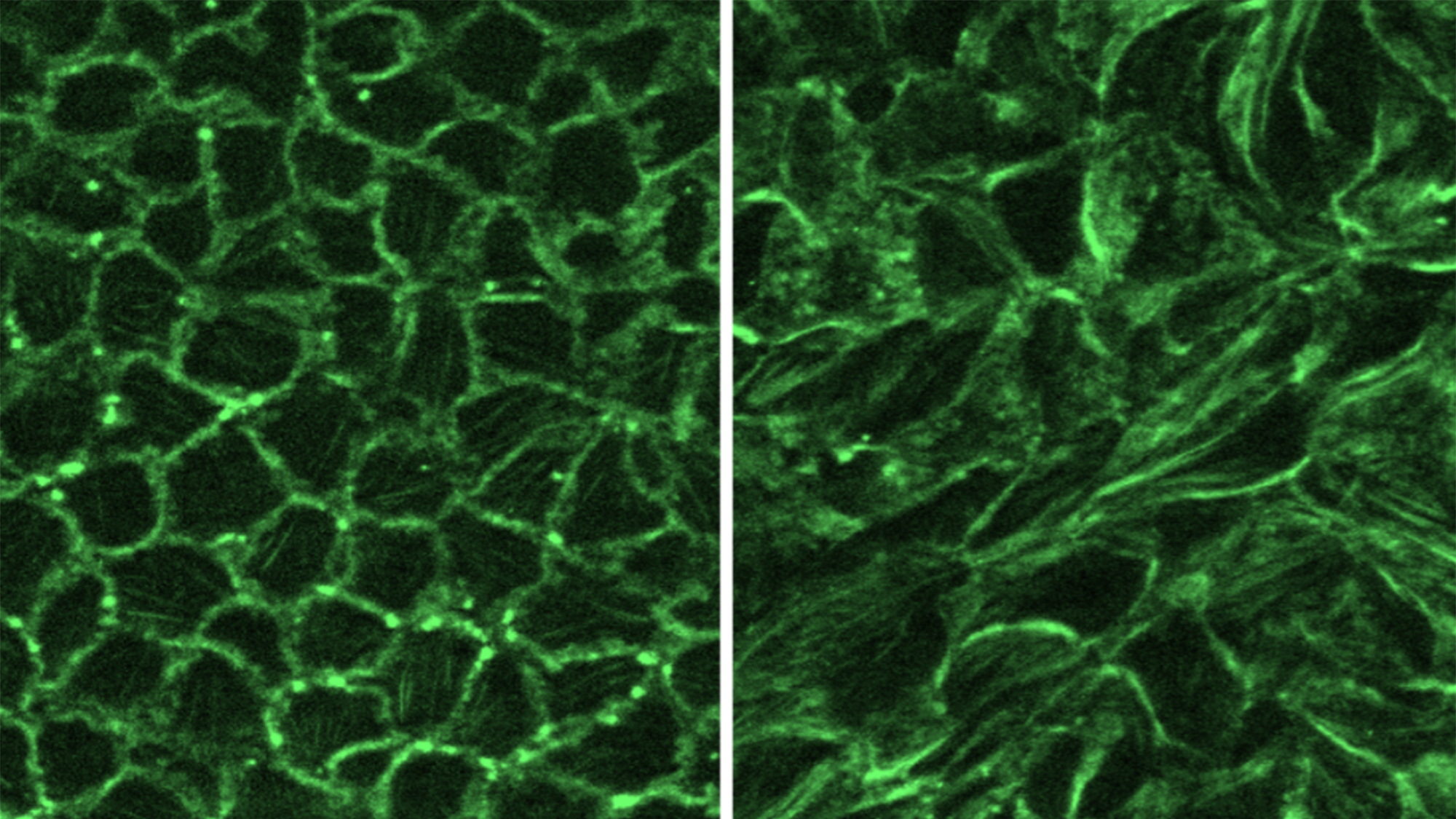Exploring the intersection of health, mindfulness, and climate change
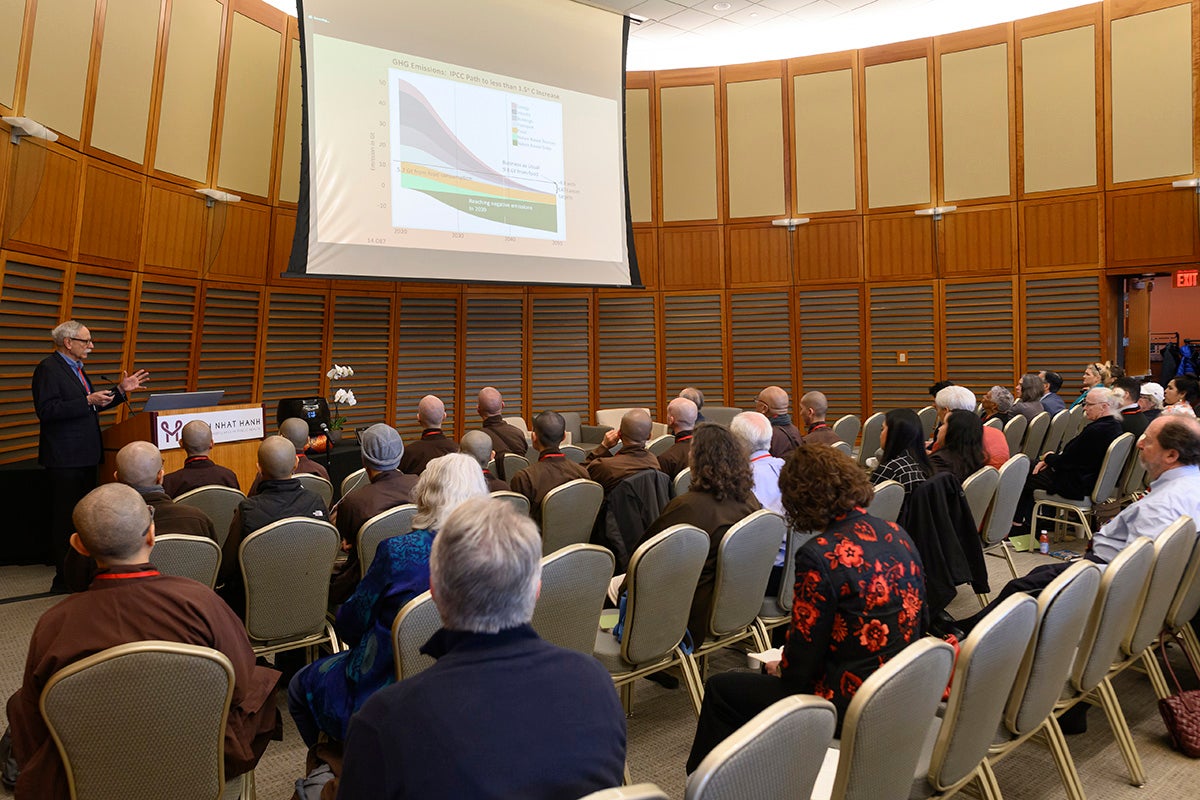
Symposium brings together academics, community leaders, activists, mindfulness practitioners, and monastics who studied under Thich Nhat Hanh
April 25, 2024 – Not every symposium on climate change begins with the sound of a bell and a guided meditation led by a Buddhist monk.
A daylong event at Harvard T.H. Chan School of Public Health, Mindful Actions for Climate Change, provided a different approach to the issue than the usual dire warnings of rising temperatures, catastrophic weather events, and slow-moving public policy. Organized by the Thich Nhat Hanh Center for Mindfulness in Public Health, the April 16 symposium explored the deeper roots of the climate crisis, along with a more holistic call to action.
“When we look deeply at the issue of public health and climate disruption, we see that its roots lie in unmindful consumption,” said Sister The Nghiem (Sister True Vow), a Monastic Disciple of Zen Master Thich Nhat Hanh. “Of course, it follows that mindfulness in the way we consume is the way out. But it is much easier to say than to do.”
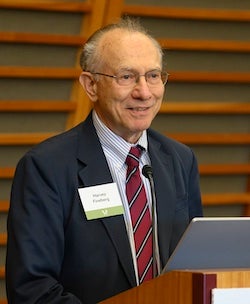
Speakers throughout the day—including public health researchers, political officials, and meditation practitioners—examined the consumption mindset as well as how to make the difficult transition to a different future. Harvey Fineberg, former Harvard Chan School dean, moderated the event, which was interspersed with sitting and walking meditations and mindful eating at lunch.
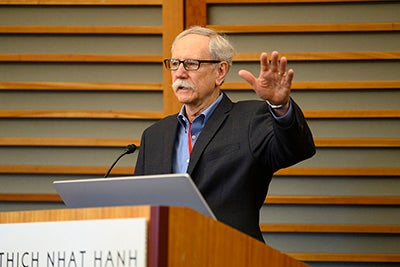
In opening remarks, Walter Willett, professor of epidemiology and nutrition and director of the Thich Nhat Hanh Center, said that public health is uniquely suited to a more all-encompassing approach to the wellbeing of people and the planet. He quoted a line from the 2021 book “Zen and the Art of Saving the Planet” by Hanh, a Buddhist monk who helped introduce mindfulness to the Western world before passing away last year: “‘When you wake up and you see that the Earth is not just the environment, the Earth is us, you touch the nature of interbeing.’” Interbeing is Hanh’s term for describing the interdependency of all things in the universe. Said Willett, “This is really what public health is all about—it’s not just one person with one condition, one disease, trying to find one solution, it’s about that interbeing.”
As an example, he pointed to findings from the Nurses’ Health Study—the longitudinal study of diet and health that Willet has helped lead for more than 40 years, which tracks more than 250,000 people. The latest data has shown that the healthiest diet—a Mediterranean-style diet including whole grains, vegetables, legumes, and little or no red meat—can lower mortality risk by up to 30%. At the same time, given that red meat production is one of the biggest contributors to fossil fuel emissions, the Mediterranean diet is also healthy for the planet. “What we do in our own lives does have a ripple effect throughout the world,” Willett said.
Taking action
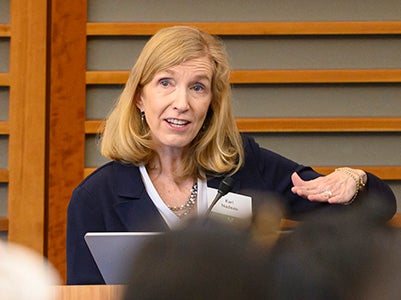
Other Harvard Chan speakers at the symposium included Kari Nadeau, John Rock Professor of Climate and Population Studies and chair of the Department of Environmental Health, who discussed the links between climate change and health, and David Williams, Florence Sprague Norman and Laura Smart Norman Professor of Public Health, who spoke on the connections between environmental racism and health disparities.
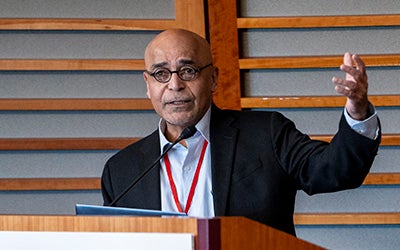
At a panel titled “Imperatives for Action,” Kasisomayajula “Vish” Viswanath, Lee Kum Kee Professor of Health Communication, focused on the disconnect between the existential threat climate change poses and the lack of action on the issue. He said that the most effective messaging on climate is positively framed and focused on storytelling. “Stories are wonderful because they minimize defense reactions among people,” he said. “If the messaging focuses on health and connecting it to climate change, people are likely to support positive action.”
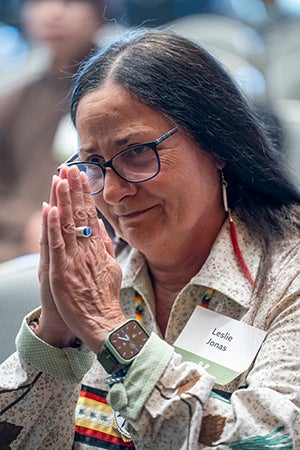
Leslie Jonas, an elder member of the Mashpee Wampanoag Tribe, spoke of her work bringing back indigenous land management practices through the Native Land Conservancy, the first indigenous land trust east of the Mississippi. She noted that, in 2022, the Biden Administration issued guidance for federal agencies on including indigenous knowledge in research, policy, and decision-making. “Such knowledge and experiences are honed over millennia from observations and connections that are place-based,” she said. By including “different ways of knowing our communities and our mother Earth,” she added, “we will then see much bigger and faster change.”
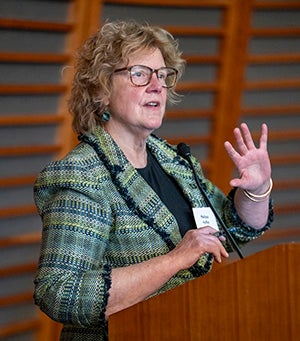
Massachusetts’ first climate chief, Melissa Hoffer, spoke about extreme weather events the state has experienced as well as positive steps it has taken to address climate change, such as increasing the use of electric vehicles in the state’s public fleets and establishing the nation’s first green bank to invest in decarbonization.
The frustration of working in climate and health can be heartbreaking at times, Hoffer acknowledged. “The good thing about a broken heart is that it gets more and more open,” she said, noting that the sort of mindfulness practices that participants engaged in at the symposium can help lead to more inspiration for saving the planet. “When we engage in this work,” she said, “it allows us to really feel and see the preciousness of it all … the incomprehensible mind-blowing miraculousness of the world. And that creates more motivation to stay engaged.”
Photos: Steve Gilbert and Tony Rinaldo
